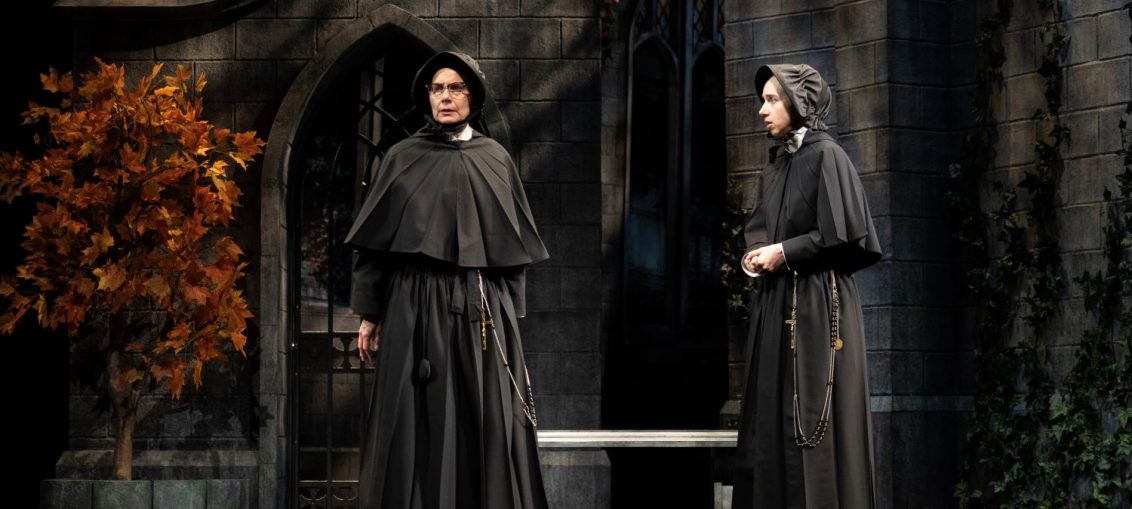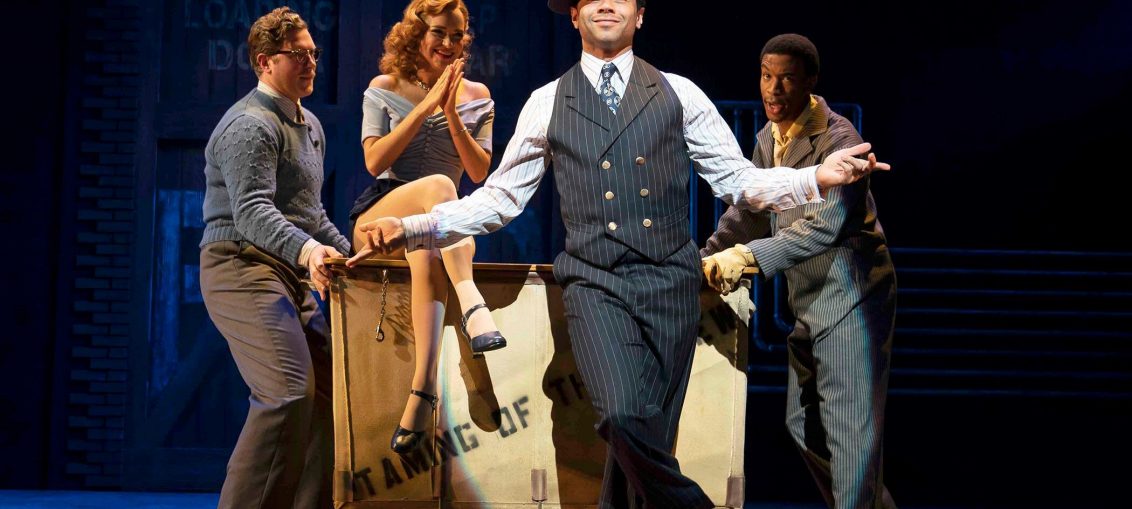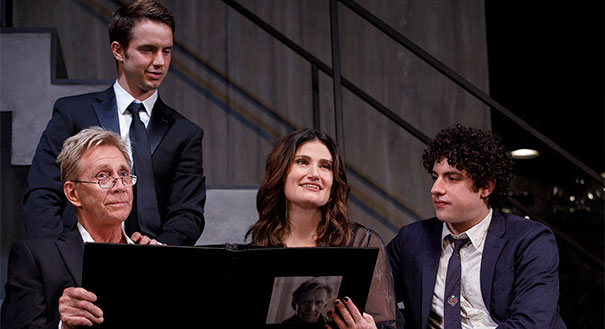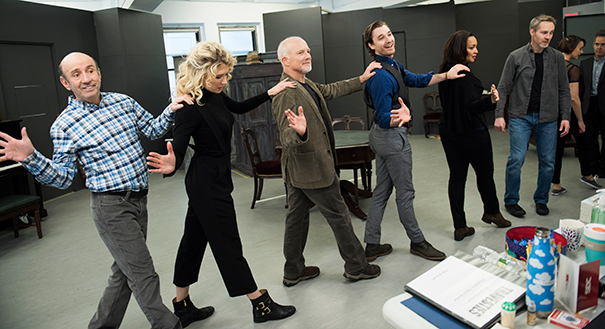When John Patrick Shanley wrote Doubt in 2004, it was (allegedly) meant to be a parable, connecting the bombshell 2002 Boston Globe expose of sexual abuse by Catholic priests with the U.S.’ 2003 invasion of Iraq. That invasion was sanctioned in a bid to find weapons of mass destruction the Iraqi government was allegedly stockpiling—an allegation that was later determined to be false. Shanley’s play—which follows a strict nun's efforts to expose a convivial priest as a child molester in 1964—opened in late 2004 and went on to win the 2005 Pulitzer Prize for Drama and the Tony Award for
Tag: Roundabout Theatre Company
“Kiss Me Kate” at Studio 54
There’s only one other full-size Broadway musical revival in town right now, that thing uptown about Eliza Doolittle and Henry Higgins, so fans of golden age musicals had better hie themselves to Kiss Me Kate. But on arriving, they may find the 1948 classic, with a book by Sam and Bella Spewack and a career-high score by Cole Porter, has been tampered with to an unhealthy degree. To be sure, there’s still plenty of glory for the eye and ear. That starts with Mr. Porter’s fabulous work, a triumph for a composer-lyricist who had thought the then-recent revolution pioneered by Rodgers
Skintight from the Roundabout Theatre Company
What drew me to Joshua Harmon’s new play "Skintight" was the opportunity to see Idina Menzel in a non-singing role. Ironically the play starts with Ms. Menzel, as indignant divorcee Jodi Isaac, delivering a lengthy screed about her ex’s engagement to a young twit half his age. It is a comic tour de force and I doubt that anyone without her singer’s lungs could have pulled it off. Jodi has impetuously flown into Manhattan to seek consolation from her father, Elliot (Jack Wetherall), a wealthy fashion mogul who is about to turn seventy. But seeking solace from Daddy is like trying
Travesties at American Airlines Theatre
All great writers—especially playwrights—become, at some point, drunk on their own words. Ben Johnson accused Shakespeare of such literary inebriation. I think the same could be said of Eugene O’Neill, Edward Albee and James Joyce—which brings me nicely to Tom Stoppard and his own great, besotted spillage of verbiage, TRAVESTIES, revived by the Roundabout Theatre Company. I first saw this play on Broadway in 1975 with the wonderful John Wood as Henry Carr. That was in my salad days, when I was green in judgment—by which I mean a lot of the play was WAY over my head. Yet I still
 Tuesday, July 8, 2025
Tuesday, July 8, 2025


